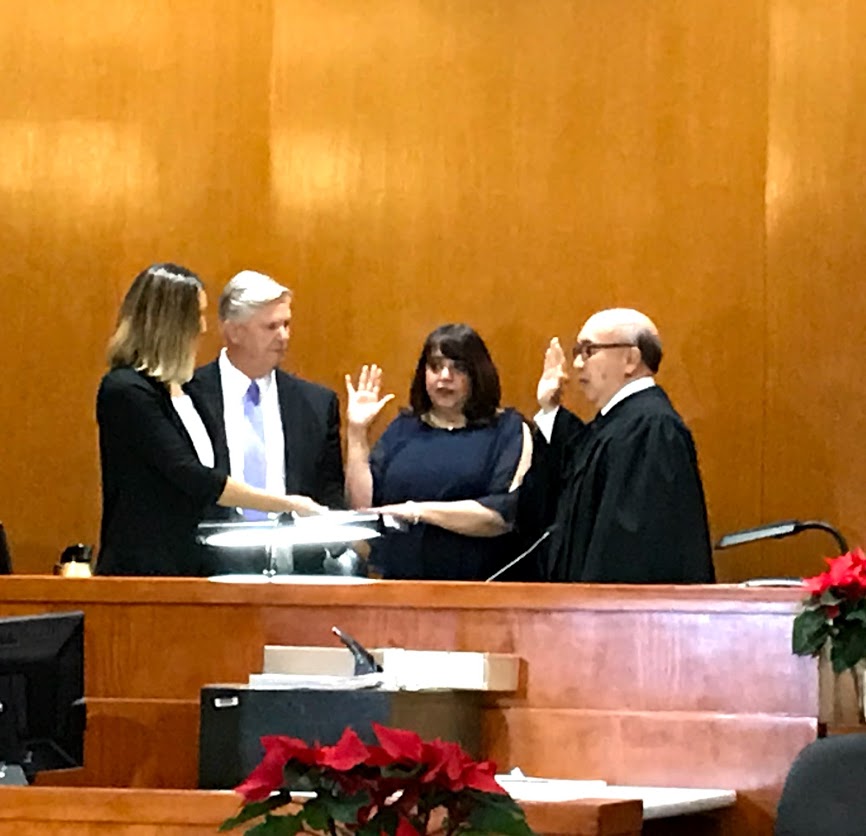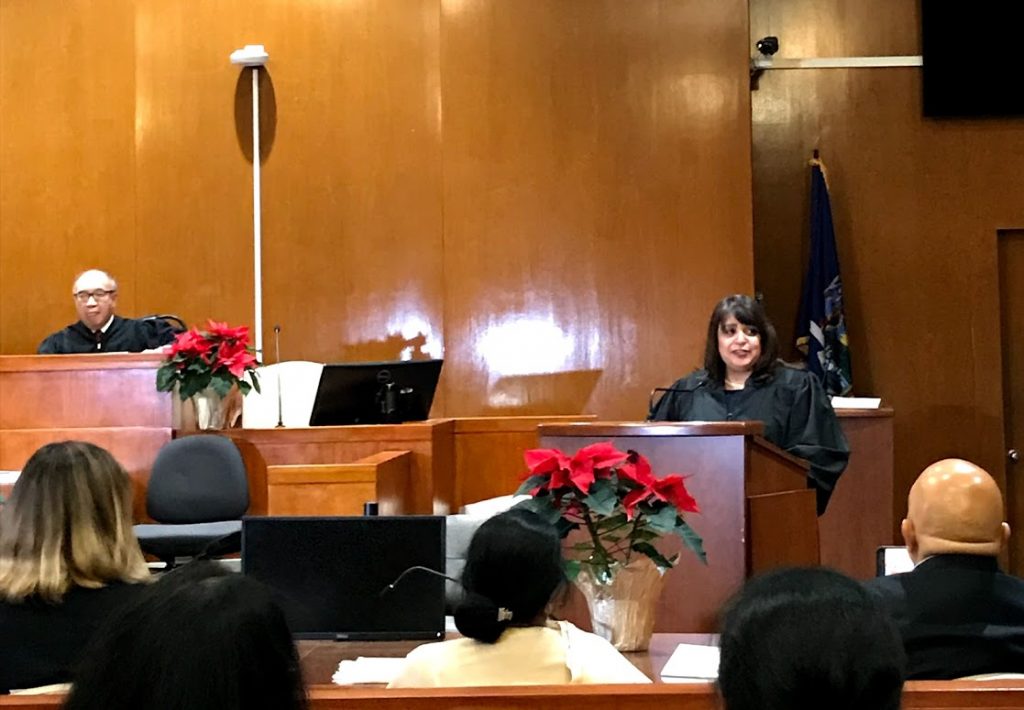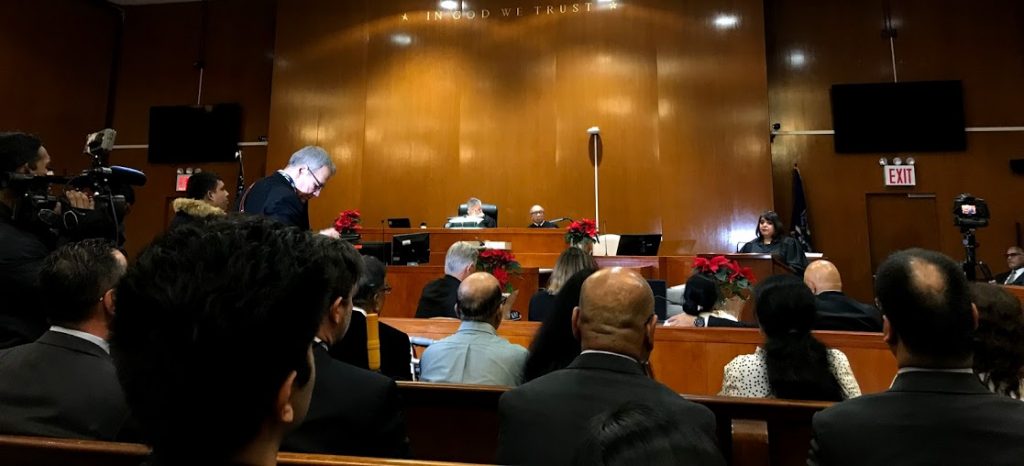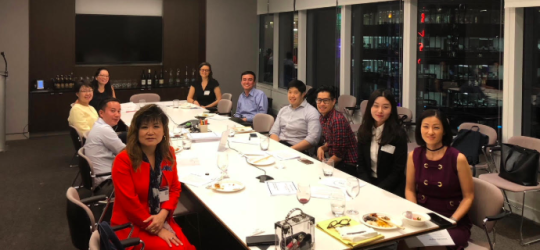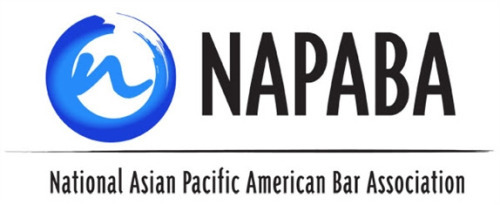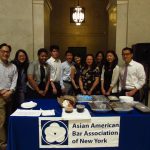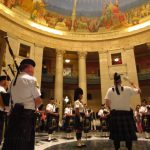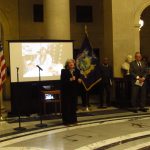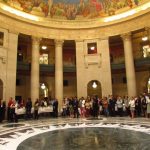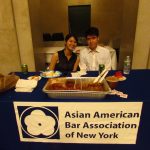For Immediate Release
March 10, 2016
For More Information, Contact:
Brett Schuster, Communications Manager
202-775-9555; [email protected]
Download: Press Release
Download: Letter to Senators Grassley and Leahy
WASHINGTON — Today, the Hispanic National Bar Association (HNBA), the National Asian Pacific American Bar Association (NAPABA), the National Bar Association (NBA), the National LGBT Bar Association (National LGBT Bar), and the National Native American Bar Association (NNABA) — representatives of diverse bar associations — submitted a joint letter to Senate Judiciary Chairman Charles Grassley (R-IA) and Ranking Member Patrick Leahy (D-VT) strongly urging the Senate to uphold its Constitutional duty by holding a fair hearing and timely vote on any Supreme Court nominee.
With a long history of supporting judicial nominees from both Democratic and Republican presidents, these five non-partisan organizations represent the interests of almost 200,000 lawyers, judges, and legal professionals of diverse backgrounds across the country.
As stated in the letter: “Delay in the Supreme Court’s ability to fulfill its duties caused by intentionally leaving the Court incomplete will have a direct impact on the legal rights of Americans, individuals and businesses of all backgrounds, across the country, and further erode public confidence in our legal system and in the functioning of our democracy.”
As professional legal membership organizations and representatives of diverse American attorneys, the five representative bar associations have consistently maintained that it is both the President’s and the Senate’s constitutional responsibility to ensure that our courts are fully functioning by nominating and fairly considering nominees as described in Article II, Section 2 of the U.S. Constitution.
“With so much at stake, this is not the time to allow our highest court in the land to operate without a full bench,” said HNBA National President Robert T. Maldonado. “As our Constitution outlines, the President should nominate a candidate and the Senate carries the responsibility to vet and confirm. To not fill that seat would be a denial of justice. Let’s give the American people what they want: a fully-functioning judicial branch that gives everyone fair and equal protection under the law.”
“It is imperative that the Senate fulfill their constitutional obligations by giving the President’s nominee fair consideration and a timely vote,” said Jin Y. Hwang, NAPABA president. “By depriving this nation of a fully functioning Supreme Court, the Senate is not only ignoring their constitutional duty, but taking historically unprecedented action. The Senate must do the job they were elected to do and not hamper the effectiveness of the judiciary.”
“When the American People reelected President Obama in 2012 they placed trust in him perform the job of President of the United States. One function of the job includes nominating individuals to fill vacancies on the U.S. Supreme Court. Senate Republicans are correct when they say that the American People should have a voice in the matter, but what they are forgetting is that the American People spoke twice, in 2008 and 2012 when they voted for President Obama. Senate Republicans not only must allow the President of the United States to do his job, but they also must perform their duties under the U.S. Constitution. It is unacceptable that Senate leaders have hindered the functionality of the Federal Court system by obstructing the nominations process,” added NBA President Benjamin L. Crump.
“Regardless of which political party currently holds power in either the Presidency or the Senate, both have a constitutional duty to ensure that the Supreme Court vacancy is filled in a timely manner,” said Eduardo Juarez, president of the National LGBT Bar Association. “We urge all parties involved to fill the vacancy to ensure a properly functioning judiciary. For the Senate to abdicate its constitutional duty to advise and consent is not only wrong, but it is unprecedented.”
“The desire for an accessible, fair judiciary is a cornerstone of our democracy,” said Linda Benally, NNABA president. “Indeed principal criticisms of the King of England in the Declaration of Independence were that he ‘obstructed the Administration of Justice, by refusing his Assent to Laws for establishing Judiciary Powers;’ that he ‘made Judges dependent on his Will alone, for the Tenure of their Offices, and the Amount and Payment of their Salaries.’ The people decided, in the Constitution, the process for ensuring that such tyranny would never again burden the United States, conferring upon the President the obligation to nominate Justices to serve on the Supreme Court and obligating the Senate to counsel the President on such nominees. This is not a partisan issue; it is an issue of each duly-elected public official honoring the public’s trust and fulfilling his or her obligations to the people of the United States as set forth in the Constitution.”
The HNBA is an incorporated, not-for-profit, national membership organization that represents the interests of the more than 50,000 Hispanic attorneys, judges, law professors, legal assistants, and law students in the United States and its territories. From the days of its founding three decades ago, the HNBA has acted as a force for positive change within the legal profession. It does so by encouraging Latino students to choose a career in the law and by prompting their advancement within the profession once they graduate and start practicing. Through a combination of issue advocacy, programmatic activities, networking events and educational conferences, the HNBA has helped generations of lawyers succeed.
NAPABA is the national association of Asian Pacific American (APA) attorneys, judges, law professors, and law students. NAPABA represents the interests of over 50,000 attorneys and over 75 national, state, and local bar associations. Its members include solo practitioners, large firm lawyers, corporate counsel, legal services and non-profit attorneys, and lawyers serving at all levels of government. NAPABA engages in legislative and policy advocacy, promotes APA political leadership and political appointments, and builds coalitions within the legal profession and the community at large. NAPABA also serves as a resource for government agencies, members of Congress, and public service organizations about APAs in the legal profession, civil rights, and diversity in the courts.
Founded in 1925, the NBA is the nation’s oldest and largest national network of minority attorneys and judges. It represents approximately 60,000 lawyers, judges, law professors and law students and has over 80 affiliate chapters throughout the United States and around the world. The organization seeks to advance the science of jurisprudence, preserve the independence of the judiciary and to uphold the honor and integrity of the legal profession. For additional information about the National Bar Association, visit www.nationalbar.org.
The National LGBT Bar Association is a national association of lawyers, judges and other legal professionals, law students, activists and affiliated lesbian, gay, bisexual and transgender legal organizations. The LGBT Bar promotes justice in and through the legal profession for the LGBT community in all its diversity.
Founded in 1973, the NNABA serves as the national association for American Indian, Alaska Native, and Native Hawaiian attorneys, judges, law professors and law students. NNABA strives for justice and effective legal representation for all American indigenous peoples; fosters the development of Native American lawyers and judges; and addresses social, cultural and legal issues affecting American Indians, Alaska Natives, and Native Hawaiians.


